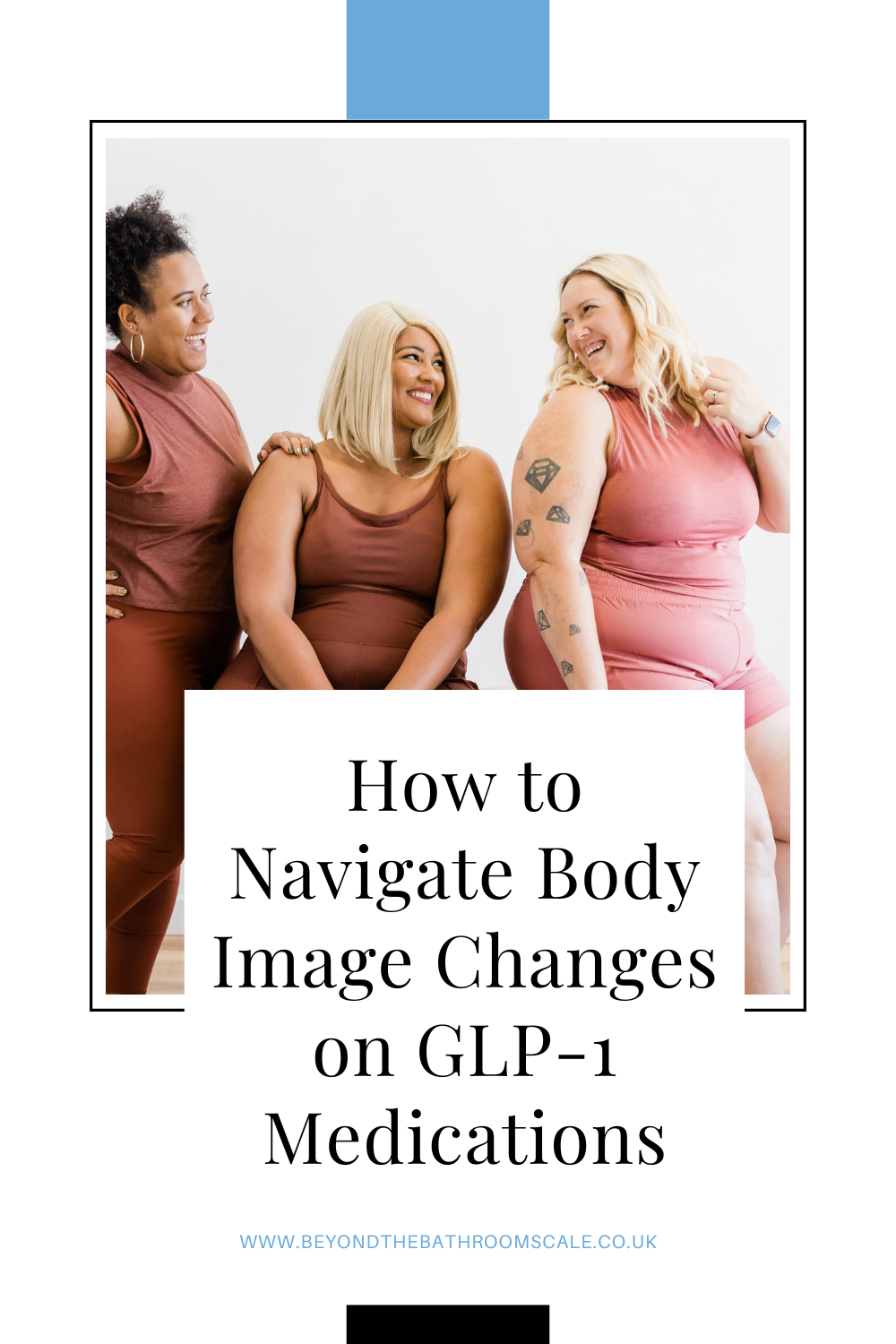How to Navigate Body Image Changes on GLP-1 Medications
When people think about weight loss injections like Ozempic, Mounjaro or Wegovy, most of the focus is on the physical: smaller appetite, lower number on the scale, changed eating habits. But what often goes unspoken is the emotional weight of those changes, especially when it comes to how you feel in your body.
As a therapist specialising in eating disorders and body image, I work with many people navigating the complex mental health impact of GLP-1 medications. Some feel more confident. Others feel lost. Many feel both.
This post is for anyone who’s experiencing physical change and emotional overwhelm. Let’s explore what it means to live in a shifting body and how to meet that experience with compassion, not criticism.
1. Body Image Isn’t About Appearance
You can lose weight and still feel deeply uncomfortable in your body. That’s because body image isn’t simply about what your body looks like—it’s about how you relate to your body, how safe or unsafe you feel inside it, and what messages you’ve internalised over time.
If your sense of self-worth has long been tied to your weight or appearance, sudden changes can shake your identity. You might feel:
Unrecognisable to yourself
Disconnected or numb
More visible, and not in a good way
These feelings are normal and worth processing.
2. Grief Is Part of the Process
Many people expect to feel happier as they lose weight, but instead, they feel unsettled, sad, or even ashamed of how much their self-image was tied to their appearance.
You might be grieving:
A former version of your body you now miss
The time and energy you’ve spent chasing thinness
The realisation that weight loss didn’t “fix” everything
This grief doesn’t mean you’re doing anything wrong. It means you’re human. And giving yourself permission to feel it can be a powerful step toward healing.
3. Fear of Weight Regain Is Real
One of the most common fears I hear from clients on GLP-1s is:
"What happens if I gain it all back?"
This fear isn’t irrational—it reflects the real-world stigma attached to weight regain, especially after medical intervention. But living in fear of the future can damage your present-day well-being.
If you find yourself obsessing over your weight, panicking about your next prescription, or feeling pressure to “deserve” the results, take a breath. These fears make sense, but they don’t have to control you.
Body trust is not about guaranteeing outcomes—it’s about learning to stay connected to your values, regardless of what your body does.
4. Unwanted Comments Can Be Triggering (Even If They’re “Positive”!)
“You look amazing!”
“I almost didn’t recognise you!”
“What’s your secret?”
Compliments about weight loss can feel confusing or even violating. They reinforce the idea that your worth is tied to your body, and that your “before” was somehow less valuable. This can create shame, guilt, or a hyper-awareness of how others see you.
You’re allowed to set boundaries around body talk. You can say:
“I’m not focusing on weight right now—can we talk about something else?”
“I feel uncomfortable with comments about my appearance.”
Or simply, change the subject without explaining.
Protecting your mental space is a valid and necessary act of self-care.
5. Compassion Is a Better Motivator Than Criticism
When your body is changing quickly, it’s easy to fall into comparison or self-surveillance. You might find yourself scrutinising old photos, tracking every shift, or panicking at the smallest fluctuation.
These behaviours don’t foster long-term peace. What does? Compassion. Try:
Placing your hand on your heart or stomach and saying, “I’m learning to feel safe here.”
Writing a letter to your body, thanking it for all it’s carried you through.
Moving in ways that feel gentle and grounding, not punishing.
Your body is not a project to be managed. It’s a home. And it’s okay if that relationship takes time to rebuild.
6. Body Image Healing Isn’t One Directional
Just as weight loss doesn’t automatically improve body image, weight gain doesn’t always worsen it. The truth is: body image can fluctuate regardless of size, and healing isn’t linear.
You might have moments of feeling confident in a new outfit, followed by waves of doubt or sadness. You might feel proud of your progress one day, and unsettled the next. This doesn’t mean you’re regressing—it means you’re responding to change.
Give yourself permission to evolve, with care and flexibility.
Tools to Help You Navigate the Shift
If you’re struggling to make sense of your changing body and want structured, compassionate support, my GLP-1 Coaching Workbook is for you.
Inside, you’ll find:
✔️ Body image reflections and journaling prompts
✔️ Tools to process fear of weight regain
✔️ Exercises to build body trust and challenge appearance-focused thinking
✔️ A non-judgmental space to reconnect with yourself
👉 Download the workbook here and take the next step toward emotional well-being, regardless of your size.
TL;DR Summary:
GLP-1 medications like Ozempic and Wegovy can lead to rapid body changes, but body image healing is more than skin-deep. This blog explores the emotional impact of shifting size, the grief that can come with change, and how to stay grounded in self-compassion as your body evolves.


